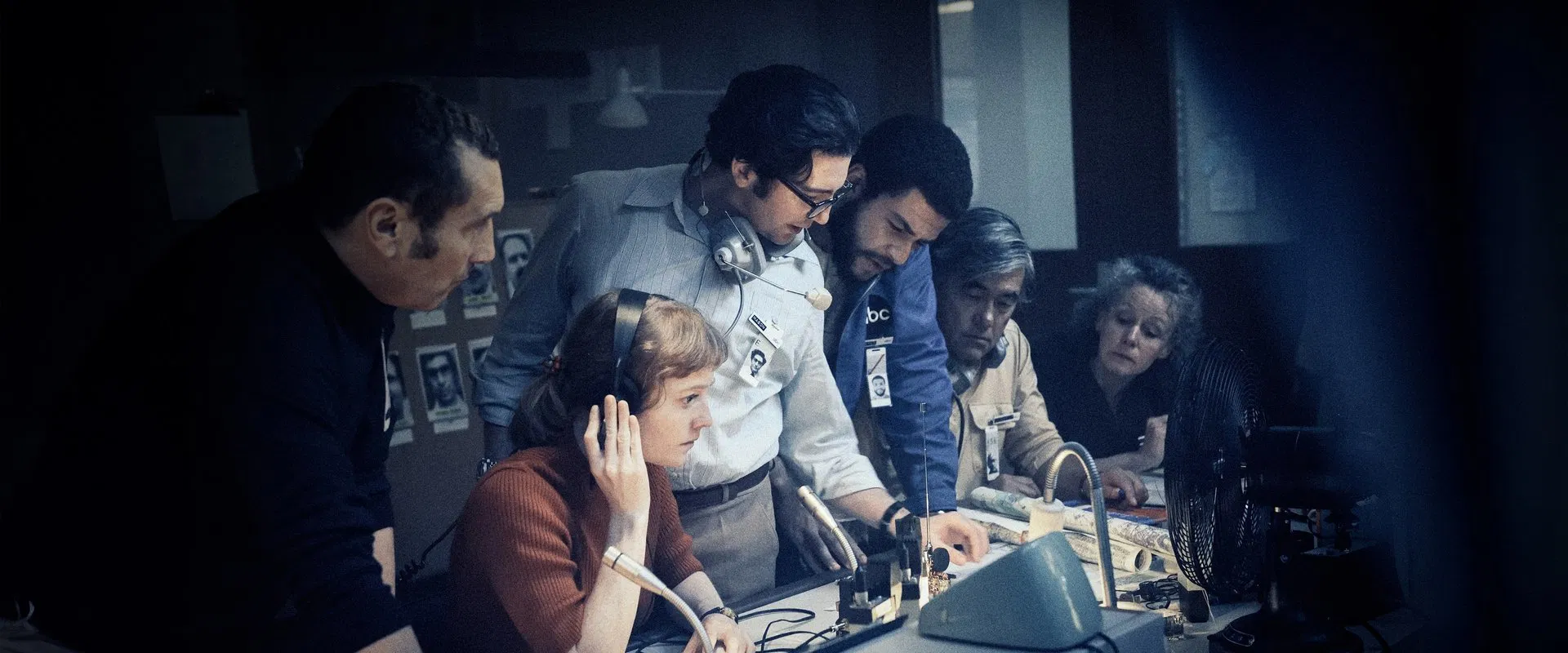September 5 arrives on the screen as an urgent, bracing slab of historical drama—a kind of fevered docudrama pitched somewhere between the fretful hum of a 1970s control room and the icy dread pressing in from the world outside. Tim Fehlbaum’s direction plunges us into the back corridors of catastrophe: the Munich massacre at the '72 Olympics is no longer simply a horror recalled, but a media spectacle in real-time, filtered through the sweating brows and moral agonies of ABC Sports. Not since Lumet thrust us behind the cameras in Network have we felt the pulse of crisis with such claustrophobic vitality—and with almost as much queasy self-examination.
The core here isn’t gunmen or politicians or even the athletes whose faces flicker in the background, but the technicians and executives wrestling with the invisible, inexorable violence of narrative itself. John Magaro’s Geoffrey Mason is a quiet storm at the console—eschewing the wild theatricality you might expect, he gives us a man for whom gravitas is a survival mechanism, not a performance. Magaro understands that in a crisis, stillness is the rarest kind of courage, and his haunted eyes do more communicating than any platitude about "journalistic integrity." Right beside him, Peter Sarsgaard picks at the corporate ambition of Roone Arledge like a vulture pecking at its own reflection—he is all drive and calculation, his charisma curdled by the anxieties of live television. Ben Chaplin, meanwhile, lends a stiffness to Marvin Bader’s bureaucratic conscience—he is the embodiment of the internal memo, forever trying to layer rationality atop the chaos, usually failing.
Fehlbaum (wisely, I think) lets the drama vibrate through gestures and glances rather than bombast. If the movie has a kind of nervous electricity—cutting from rolling film canisters to frantic notetaking—its 94-minute run time feels as tightly wound as a news crawl, all tension and no flab. Yet for all its verisimilitude, for all the evocative cigarette haze and analog humming, September 5 can’t quite transcend its own narrow focus. The broadcast crew’s race for ratings, those ethical migraines about what it means to show horror as it unfolds—these are presented with admirable bite. The moment when the ABC team realizes the terrorists are themselves watching the coverage builds genuine, sweat-under-the-collar suspense. But this suspense is, finally, ethically hermetic—a drama of good men tortured by their own limitations, safely cocooned in the belief that more information is always better.
Where the film wavers—no, falters—is in its refusal to animate the larger story surrounding the Munich attack. The Palestinians here are phantoms, consigned to the shadows, as if history can be drained of context through some pious act of neutrality. The film’s apolitical pose, that double-edged sword, comes off less as evenhandedness than as a betrayal of reality—a quietist’s retreat into technical prowess while the world outside burns. This is the danger with “as-it-happened” storytelling: reportorial rigor can easily masquerade as cowardice, thrilling us with the spectacle of catastrophe without risking a single, difficult complication.
Yet visually, September 5 is a tactile time capsule—brimming with anxious movement and analog squall, the control rooms rendered as trenches where history is up for auction. Fehlbaum and cinematographer [insert DP name] unravel the period details with such tactile veracity that you can practically smell the burnt coffee and hear the static hiss behind the urgent shouts. The editing—mercifully unadorned—resists self-seriousness, giving the whole affair the propulsive thrust of news breaking over the wire, shard by somber shard. Even the sound design underscores the daily absurdity of popping Tic-Tacs between life-and-death bulletins.
September 5 is, then, a valiant, immersive piece of craftsmanship, but it is also a cautionary tale about the dangers of artistic neutrality. Fehlbaum’s film will grip you tightly, pull you behind the curtain, force you to sweat and agonize alongside its haunted crew. And yet, when the credits roll, you’re left with the chilling sense of what has not been said, the truths blinking in the dead air between soundbites. It is a harrowing, elegantly crafted account of a dark moment—one that thrills and disturbs, even as it hesitates to lay blame or pick apart the shrapnel of history.
In the end, the movie delivers a sharp poke in the eye to those who confuse reportage with understanding, and in that way, its limitations are as instructive as its virtues. As a piece of cinema, September 5 is nearly exhilarating in its depiction of procedural panic; as a chronicle of moral crisis, it remains as haunted by absences as by its ringing phones and up-to-the-minute bulletins. The line between telling a story and owning up to it is razor-thin—and September 5 bleeds right at the edge.


